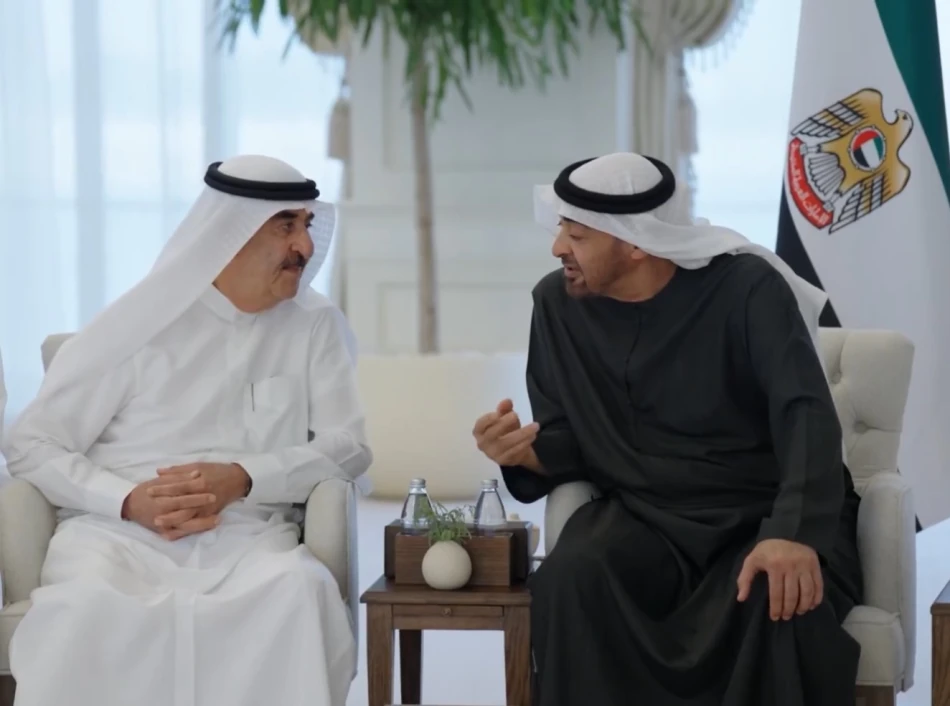
Mohammed bin Zayed and Umm Al Quwain Ruler Discuss National and Citizen Affairs
UAE Leadership Reinforces Federal Unity in High-Level Abu Dhabi Summit
President Sheikh Mohamed bin Zayed Al Nahyan hosted Umm Al Quwain's ruler Sheikh Saud bin Rashid Al Mualla in a significant federal gathering that underscored the UAE's commitment to citizen-centered development and inter-emirate cooperation. The meeting, attended by senior federal officials and crown princes, signals the leadership's focus on strengthening national cohesion as the country navigates regional economic transformation.
Strategic Dialogue on National Priorities
The Al Bahar Palace meeting in Abu Dhabi brought together key figures from across the UAE's federal structure, with Deputy President Sheikh Mansour bin Zayed Al Nahyan presiding alongside the two leaders. The discussions centered on citizen welfare and national development strategies, reflecting the leadership's philosophy that investing in Emirati citizens remains the cornerstone of the country's long-term prosperity.
This emphasis on human capital development comes at a crucial time as the UAE diversifies its economy beyond oil dependency, positioning itself as a global hub for technology, finance, and sustainable energy.
Federal Unity on Display
The gathering's composition tells a story of institutional strength. Crown princes from multiple emirates attended, including Sheikh Khaled bin Mohamed bin Zayed Al Nahyan of Abu Dhabi and Sheikh Rashid bin Saud bin Rashid Al Mualla of Umm Al Quwain, alongside key federal ministers responsible for interior and foreign affairs.
This cross-emirate representation demonstrates the UAE's unique federal model, where smaller emirates like Umm Al Quwain maintain significant voice in national decision-making despite Abu Dhabi and Dubai's economic dominance.
Timing and Regional Context
The meeting occurs as Gulf states face mounting pressure to accelerate economic diversification amid global energy transitions. The UAE's focus on citizen development contrasts with regional approaches that rely heavily on expatriate expertise, suggesting a deliberate strategy to build indigenous capabilities for the post-oil economy.
Investment Implications
For investors and market observers, such high-level federal coordination signals policy continuity and institutional stability. The UAE's emphasis on citizen-centered development likely means continued investment in education, technology sectors, and Emiratisation programs across industries.
The presence of multiple crown princes also suggests generational alignment on key policy directions, reducing uncertainty about the country's strategic trajectory as leadership transitions unfold across emirates in coming decades.
Broader Significance
Unlike other Gulf monarchies where power remains highly centralized, the UAE's federal structure requires constant dialogue and consensus-building among rulers. These regular consultations have proven crucial to maintaining stability during regional upheavals, from the Arab Spring to recent geopolitical realignments.
The meeting's focus on preserving national achievements while planning future development reflects a mature approach to governance that has helped the UAE avoid the political turbulence affecting other regional powers.
Most Viewed News

 Sara Khaled
Sara Khaled






